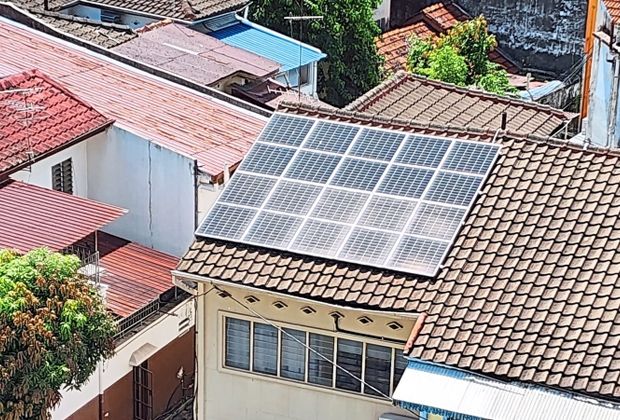Shining a light on solar power – The Star Online
PUTRAJAYA: A special initiative aimed at encouraging the installation of solar photovoltaic (PV) systems in residential premises under the Net Energy Metering (NEM) programme has been launched, said Datuk Seri Fadillah Yusof.
The Energy Transition and Water Transformation Minister said the installation of solar PV systems in residential premises by domestic users, dubbed as the Solar for Rakyat Incentive Scheme (SolaRIS), is a “quick win” measure that enables the effective utilisation of building roof space for renewable energy generation.
“Considering its great potential, the installation of solar PV systems in residential premises should be expanded to support the government’s efforts to increase the REG capacity in the electricity supply system to 70% by 2050 and reduce carbon emissions from the power supply sector,” he said in a statement here yesterday.
Fadillah, who is also Deputy Prime Minister, said the launch of SolaRIS is expected to increase solar generation adoption under the NEM programme, providing rebates of RM1,000/kWac up to a maximum of RM4,000 to new NEM Rakyat users who submit their NEM applications to the Sustainable Energy Development Authority Malaysia (Seda) on or after April 1 this year.
He said the scheme is open to all Malaysian citizens with a one-time claim limit per individual who is a TNB account holder and is also available to first-time applicants for the NEM programme, Bernama reported.
The rebates will be given on a “first come, first served” basis for NEM Rakyat quotas applied from April 1 until Dec 31, 2024.
Approved NEM Rakyat applications must be operational by March 31, 2025, or until all SolaRIS rebate quotas have been exhausted, whichever comes first.
In addition, rebate payments for the installation and operation of the solar PV system under the NEM Rakyat programme will only be disbursed to the bill holder’s local bank account upon completion, subject to terms and conditions. The granting of the incentive will be handled by TNB.
Details about the programme can be found on the websites of TNB, Seda and the Energy Commission.
This post was originally published on 3rd party site mentioned in the title of this site


